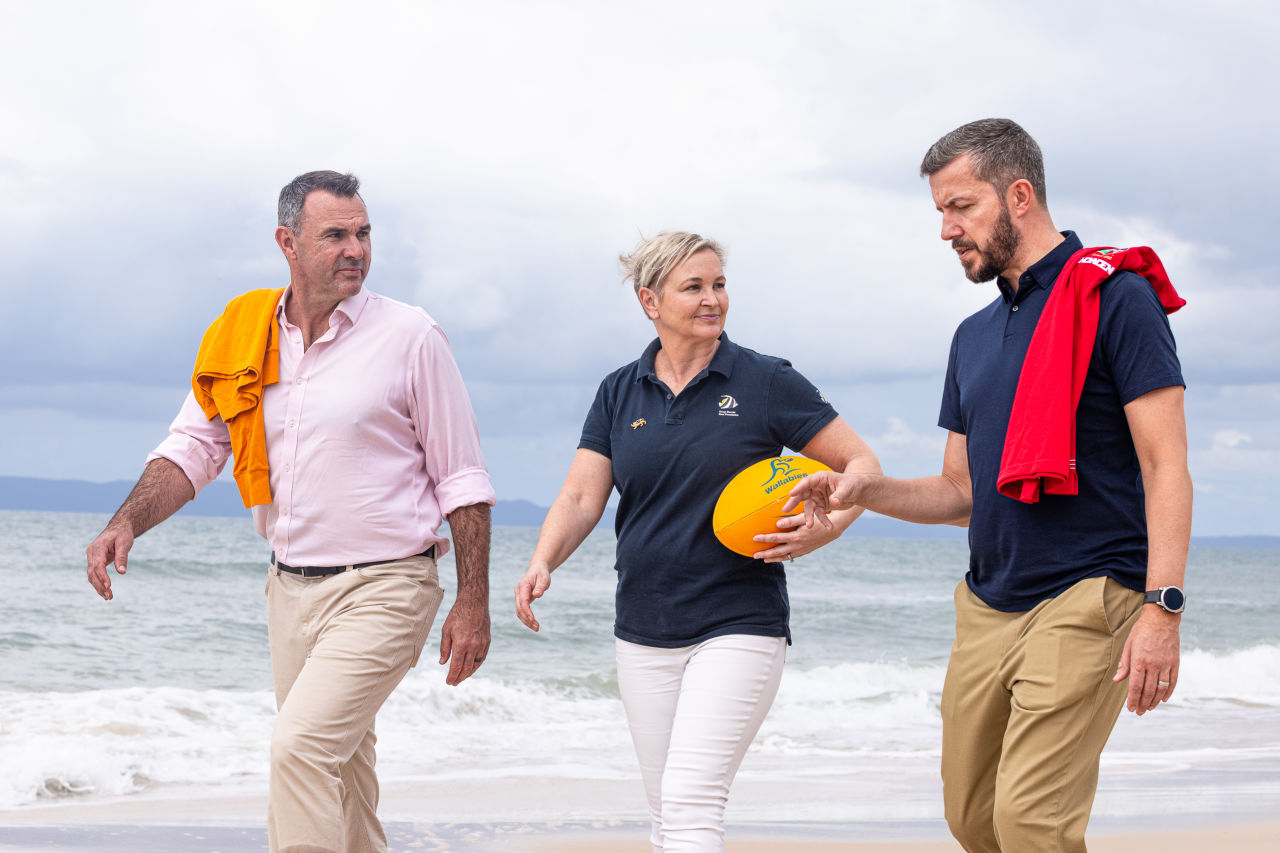
Dropbears, or unusually large and vicious koalas, have been terrorising the imaginations of unsuspecting tourists for some time. A dropbear is gonna get ya! is a prank shared by Indigenous and non-Indigenous tour guides, and a delicious and scary myth passed down from parents to children on bushwalks or camping trips.
Poet and researcher Evelyn Araluen enjoys the humour so much she made Dropbear the title of her first volume of poetry which has won the $60,000 Stella Prize, an Australian literary award for women and non-binary writers.
“Dropbears are how we warn people about the land but in a playful and larrikin way,” said Araluen. “It allowed me to use a poetic voice that was cheeky and subversive and it tells readers they are allowed to laugh and not everything about the book is super serious.”
Araluen is a PhD candidate in contemporary Aboriginal literature at the University of Sydney. She was born and raised on Dharug country and she is a descendent of the Bundjalung Nation. Her father Barry Corr was one of the original group of students who went on the Freedom Ride in 1965 at the University while he was studying English, alongside fellow student .
“Dad was one of the first Aboriginal people to study at the University so we’re a real Sydney Uni family,” Araluen said. “He didn’t finish his English degree but he did go on to become a history teacher.”
PhD thesis
Araluen graduated from University of Sydney in 2015 with a Bachelor of Arts with First Class Honours in English, and participated in the 50th anniversary of the Freedom Ride that same year.
She is now working on her PhD which looks at Aboriginal women’s publishing in Australia and the work of writers Alexis Wright, Melissa Lucashenko, Ellen van Neerven and Tara June Winch. “I look at how contemporary women’s publishing is responding to the settler-colonial canon and different forms of refusal and reimagining of the Australian settler-colonial literary traditions in their work,” Araluen said. “I also have poetic responses to that material as well and some of those poems are included in Dropbear.”
Stella Prize

Evelyn Araluen and 2022 Stella Prize Chair of Judges, Melissa Lucashenko. Photo: Marie-Luise Skibbe
This is the first time a collection of poetry has been eligible for the Stella Prize, making Araluen the first poet to win. The judges said the book was “breathtaking” and a “wild ride” turning the icons of Australia inside out: “Araluen’s brilliance sizzles when she goes on the attack against the kitsch and the cuddly: against Australia’s fantasy of its own racial and environmental innocence.”
Araluen said winning the Stella Prize was a dream come true. “There aren’t words to explain how thrilled I am.”
She said the poems in Dropbear are a direct response to the traditional Australian literary canon, including the children’s titles Snugglepot and Cuddlepie, Dot and the Kangaroo and Blinky Bill.
“These works have erased Aboriginal embodied presence on Aboriginal land in favour of a settler-colonial nationalist trope that suggests the land is an extension of Britain and includes European ways of viewing the land,” she said.
“For example, Dot and the Kangaroo is about a little white girl who goes missing in the bush and in her adventures she has to avoid Aboriginal people who are represented as savages and dangerous forces in the landscape, before she can be returned to her white family and the homestead. This story was published and made into a film at the time when there was incredibly high rates of Aboriginal children being removed from their families. So I’m looking at how settler anxieties were used to speak over the lived experiences of Aboriginal people and communities, to silence a very legitimate concern with a very illegitimate fear-based approach to Aboriginal people and to the land.”
She said her poetic responses are very personal and offer a balance between humour and more pointed critique.
“There are some poems that are more silly and satirical and they attempt to address the tradition in a playful way,” she said. “Then there are poems which are understandably quite angry about the ongoing impacts of some of these ways of viewing the land. Some are very angry, and I’m not afraid of using the word angry.”
Araluen developed her poetry under the supervision of in the English Department. She is also co-editor of the literary journal Overland and will be speaking at the on 19 and 20 May.
Studying Australian Literature
As a researcher, Araluen wants all schools to place an appropriate amount of respect on Aboriginal stories. “When I was growing up there wasn’t a lot of Aboriginal publishing in traditional book forms but now that is rapidly expanding and we are getting stories published for children and young adults.”
She has a call to action: “Aboriginal storytelling belongs in our whole national literary tradition and should not be relegated to an external, more decorative addition to the Australian literary tradition,” she said. “Instead, it should be acknowledged as the foundation of our literature.”
“We must have respectful engagement with these stories and the cultural teaching not just for Aboriginal people but also for non-Aboriginal people, who are guests on Aboriginal country.”
Dropbear is published by University of Queensland Press. Evelyn Araluen will be speaking at , 2022. Top photo left to right: Clare Wright, Evelyn Araluen, Aviva Tuffield, Jess Hill, Emily Bitto, Sophie Cunningham. Photo: Marie-Luise Skibbe





